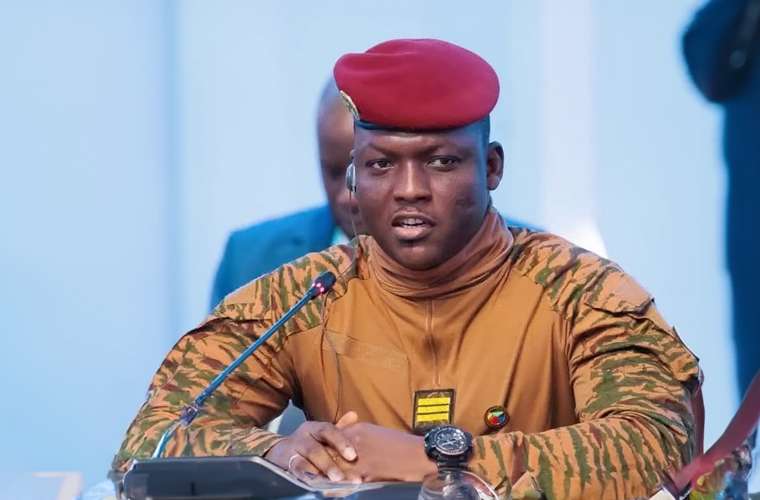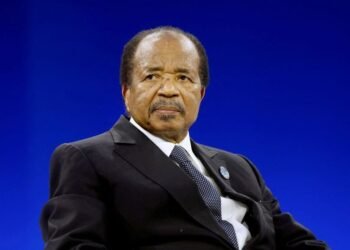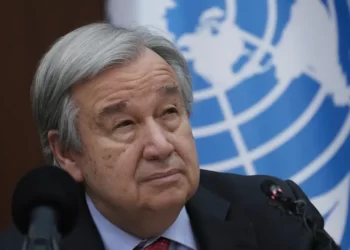The recent spate of shootings in Burkina Faso’s capital, Ouagadougou has heightened fears that the country might be on the brink of another military mutiny amidst a deepening security crisis.
Captain Ibrahim Traore, the military leader often referred to as “IB” locally, came to power in a 2022 coup.
He vowed to secure Burkina Faso, a West African nation plagued by violence and promised to expedite its transition to democracy.
His takeover followed similar military coups in neighboring Mali and Guinea.
However, early in June, Traore announced a five-year extension of the country’s transition period, citing ongoing security issues in the northeastern regions.
The military is engaged in fierce battles with two armed groups that now control nearly half of the country. This decision has led to accusations that Traore is leveraging the security challenges to extend his grip on power.
Recent developments have raised questions about Traore’s control over the situation and what steps the Burkinabe government might take to stave off internal threats.
Amidst intense fighting against armed groups linked to al-Qaeda and ISIL (ISIS), an analyst in Ouagadougou, speaking on condition of anonymity, noted that a devastating loss for Burkinabe troops in June has intensified dissatisfaction within the army towards Traore’s administration.
Attack on Military Base
On June 11, the Jama’at Nusrat al-Islam wal-Muslimin (JNIM) launched a significant attack on an army base in Mansila, a village near the Niger border in northeastern Burkina Faso.
According to JNIM’s statements, the offensive resulted in the deaths of 107 soldiers, marking one of the worst setbacks for the military since the violence spilled over from neighboring Mali in 2015.
Videos circulated by JNIM propaganda accounts show fighters in military fatigues and on motorcycles attacking the army base.
About seven Burkinabe soldiers were captured, and JNIM displayed an array of seized military equipment, including Kalashnikov rifles and other weapons.
Just a day later, on June 12, gunfire erupted around the Radio Television du Burkina (RTB), the national broadcaster’s premises in Ouagadougou.
The station, situated near the presidential palace where Traore was meeting with a council of ministers, is a symbolic target often used by rebels to announce their takeovers during coups.
Footage and photos from RTB showed bullet-riddled cars and signs of projectile damage at the site.

Two people sustained minor injuries and were treated and released. Initially, authorities remained silent on the incident, but on Thursday, June 20, Traore visited the broadcaster, attributing the gunfire to friendly fire.
“Those who are there to protect you are the ones who unfortunately caused the incident,” Traore stated.
“It’s part of their duties; in wanting to check a certain number of things, unfortunately, someone (mistakenly) fired the shot.”
Captain Ibrahim Traore
Earlier, on May 17, there were reports of shootings around the presidential palace itself. Although details are scant, official statements suggest a lone armed individual attacked the palace guards and was quickly subdued.
Following the Mansila attacks, rumors of army dissent surged online, while government leaders remained silent on the deaths of the soldiers.
When Traore was unphotographed for several days between June 12 and June 14 and did not issue any statements, speculation about his whereabouts grew.
Adding to the uncertainty, Army Chief General Celestin Simpore issued an alert for troops to be ready at their barracks on June 13, and helicopters were seen hovering over Ouagadougou that day.
The current climate in Burkina Faso is one of heightened tension and uncertainty, as the government grapples with both external threats from armed groups and potential internal dissent within the military ranks.
READ ALSO: Kwetey Appeals To Ghanaians To Choose A Leader With A Proven Track Record






















